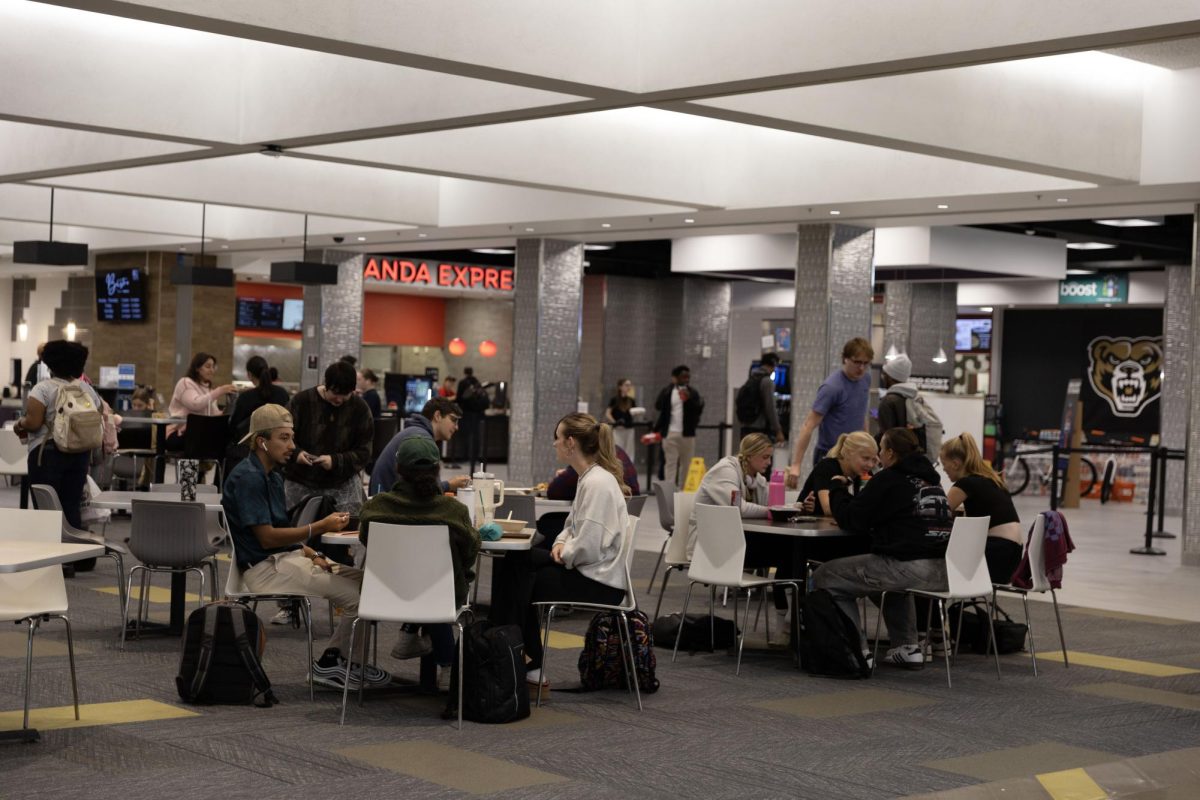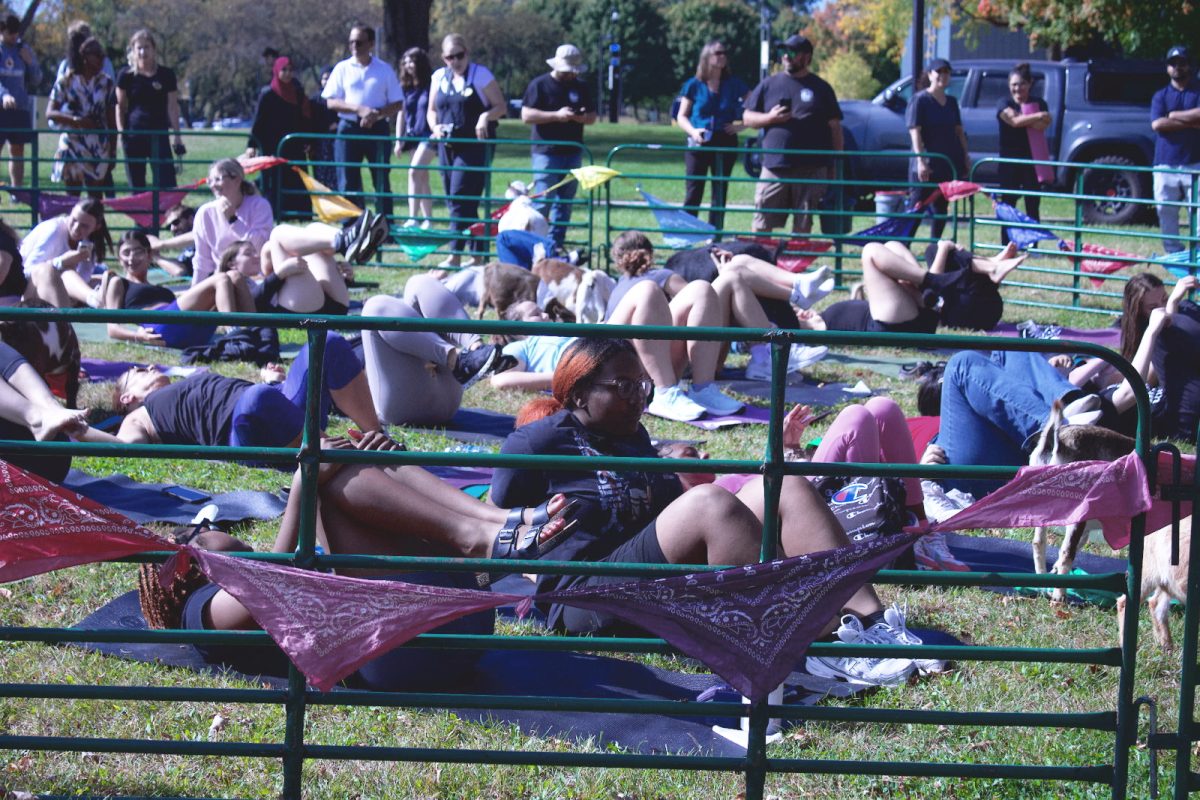Whether it is using declining points (meal dollars) for resident students or commuters paying out of pocket during long days at the Oakland Center, the same comment is repeated — food prices at OU are controversial.
A bowl at the OC’s Panda Express costs $8.59, a Celsius is $3.89 and Starbucks drinks oscillate between $3.65 and $6.25. But when you order from the Panda Express at Rochester Road, the same bowl is $8.60. Across Squirrel Road, the Grande Shaken Espresso is $4.45 while at Kresge it is $5.95. The A-Star convenience store on Adams Rd sells a Celsius for $3.49 and the CVS across the street has it at $3.19.
Christopher Reed, OC executive director, explained the setting of different prices for foods and drinks depends mainly on contracts with the franchises and Chartwells.
When talking about the snacks at the OC’s Zingerman’s Coffee Bistro, “Chartwells sets those prices in conjunction with whoever the supplier is, as well as Oakland University,” Reed said.
“When you talk about Celsius, we have the Pouring Rights Contract with Pepsi,” Reed said. “Any of the beverage products have a price that it costs Chartwells to bring in … and then they set the price based on the different costs associated with it.”
The situation with Starbucks is different, starting with the fact that OU doesn’t have a brick-and-mortar Starbucks. Instead, it is We Proudly Serve, a program allowing businesses to use Starbucks beans while operating independently of corporate-run stores, Megan Hegman, TastingTable journalist explained.
Similar to the coffee shop, the campus Panda Express doesn’t take gift cards due to the agreements between the university and the corporations. Much like a mall food court doesn’t take gift cards, Reed explained, this is because the restaurants are not franchised like brick-and-mortar restaurants.
“Panda Express, like Slim Chickens, is saying ‘here’s what it costs, kind of like the MSRP [Manufacturer Suggested Retail Price],’” Reed said. “They’re going to provide that pricing for us and then we work off of that.”
While corporations and agreements set the starting point for the pricing, OU and Chartwells also have a say in the final retail price, taking outside factors and operation costs into account.
“All the revenue goes to Chartwells, there are royalties, and it varies based on the brand,” Reed said. “Let’s use Panda Express. So, there are royalties that go to Panda Express … the contract we’re in now started where we got just a flat commission each year, which was prescribed in the original contract, and it was based on an assumed number of sales, based on historical trends and enrollment and all that.”
The contract with the fast-food enterprise was adjusted last year, becoming a “fee-based model,” Reed explained.
“Chartwells provides the services across campus,” Reed said. “They pay out all the royalties that are due, and then we either make money or we have to subsidize food service if it costs more to operate than the revenue that came in.”
Due to the decline in enrollment caused by the COVID-19 pandemic, the university had to subsidize the Panda Express operations on campus, after not generating the revenue projected in the contract.
When the university is making revenue from campus dining, a portion goes back into auxiliaries like the OC and housing to support daily operations, services, and updates like the $4.5 million renovation of the Pioneer Food Court.
New contracts with food franchises are being signed next year and the campus master plan is on the horizon, thus more food options, extended hours and higher affordability are expected to make an impact on campus dining by Fall 2025.
“It’s hard to keep prices lower than what you’re paying similar off campus, obviously, we’d love to do that, but it doesn’t always make sense,” Reed said. “I think the new RFP [Request for Proposal] and the new contract will help us to do that. I think food, how it’s delivered on campus, will change drastically next year — hopefully, it’s for the better.”











